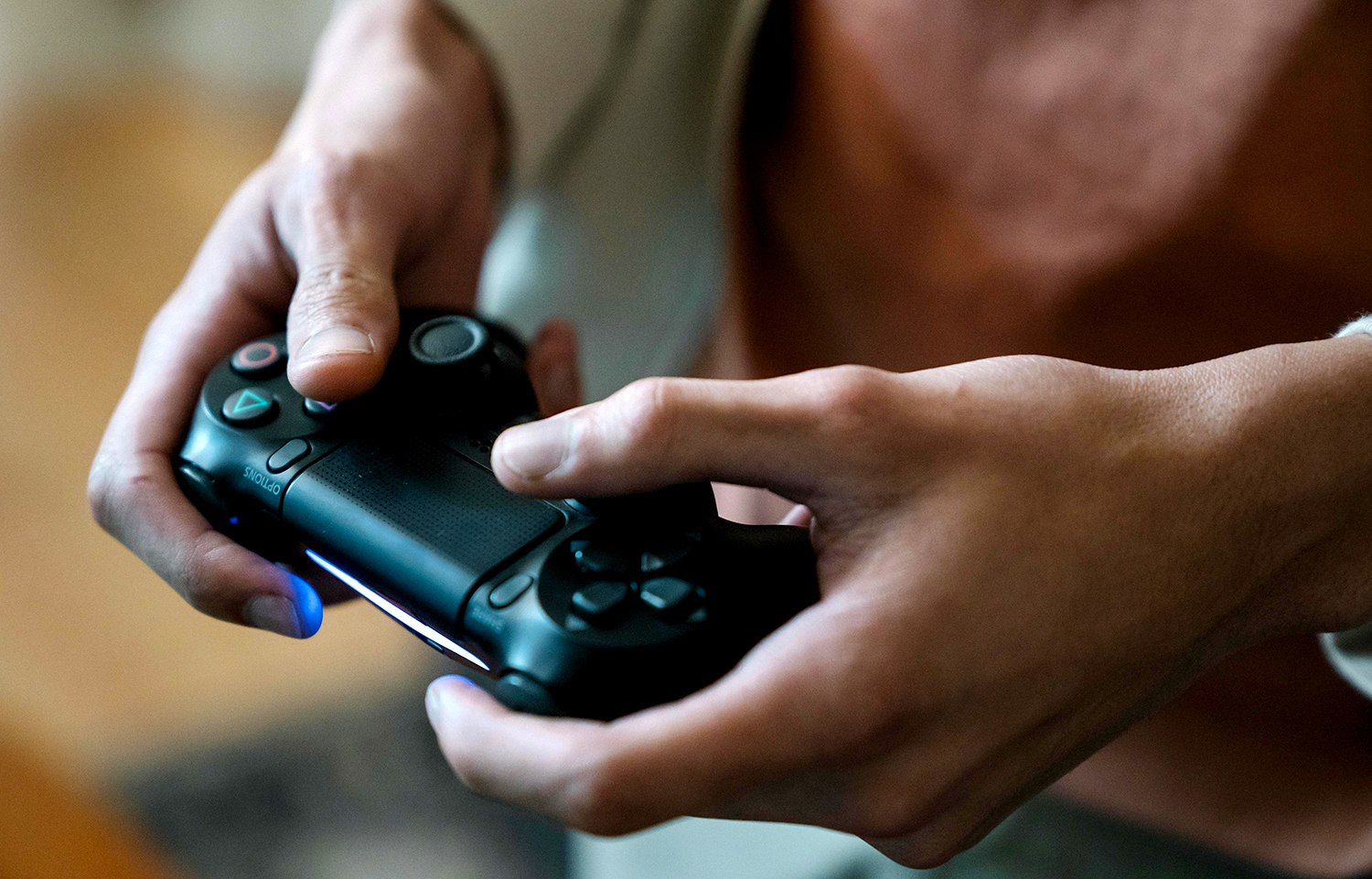"The child who doesn't have a mobile is excluded because all friends have a smartphone in elementary school."
- They warn that children who start using their smartphone and social networks, without the maturity enough to use it properly, are increasingly young, teenagers in adult games and online betting and lack of digital education.

"The recommended age to give a smartphone is between 14 and 16 years, depending on the maturity of the young person, but is often given in communions at 9 years old. As with social networks, the minimum age for accessing them is 13 years, but children from 3 and 4 years of elementary school already have TikTok accounts. We recommend that families agree to have their phones at the same age, as we have started to see a serious discrimination between boys and girls who follow the recommended criteria: all people contact each other using the smartphone at levels 4, 5 and 6 of Elementary."
These are words of Julen Linazasoro, a member of Macsmiles. With digital education as an axis, the primary and secondary schools of Hego Euskal Herria and Zaragoza taught the course over 800 training sessions last year and have produced a report with worrying conclusions.
In Primary Education, in games from 18 years old
After the lockdown, they have found that the use of smartphones, social networks and online games in Primary has increased considerably. “This decline in the age of use is not only a consequence of confinement, as last year we felt something similar, but the confinement has had a great impact.”
In Primary Education, most boys and girls between the ages of 16 and 18 play games that are not yet recommended for their age, in many cases in recommended games.
The report states that they are not protected by many content and that they are not yet mature enough to use them consciously, nor the training needed to use them safely and privately.
In high school, nailed in front of the screen
In secondary school, the trend is reinforced. "Most teens have no objection to saying that screens are used 4 hours a day and 5-7 hours on weekends." The report highlights the concern of teachers about the patterns of dependency that have been detected and the obsession with pornography among boys and girls.
They say that social networks, especially WhatsApp, are used unconsciously and often chaotic: "It's very common for WhatsApp to find teens with more than 20 groups of boys and girls," he added. And another concern: many teenagers wager online.
The macsmile detects a general lack of knowledge about the use of technology: "Even though families find that teenagers control a lot, the reality is that they use it in a very basic way and they don't know how to use it in a deeper way."
In this sense, they have stressed that many adolescents suffer many digital crimes quietly and that in digital communication there is a significant increase in toxic attitudes: normalization of toxic comments, digital aggressions and digital control of the couple.
Finally, young people "are not aware of the impact that in the future everything they publish on social networks and the Internet can have, and many share things without any filter."
Nortasuna Sarean jardunaldien 10. edizioa egingo dute asteazken honetan Donostiako San Telmon, KomunikaziONA bideguruatzean izenburupean. Egungo komunikazio joerak aztertu eta "alternatiba osasuntsuagoak" topatzen saiatuko dira. Hainbat hizlari gonbidatu dituzte, euren... [+]
Orain dela 20 bat urte, berrikuntzaren inguruan master bat egin nuen. Bertaraturiko gonbidatu batek esan zigun gizakion historian berrikuntza teknologikoaren eragile handiena gerra izan zela. Gerra, halaber, eragile handia da botere harremanen berrikuntzan.
Berrikuntzaz ari... [+]
Aspaldi pertsona oso zatar bat ezagutu nuen, urrun izatea komeni den pertsona horietako bat. Bere genero bereko pertsonengana zuzentzeko, gizonezkoengana, “bro” hitza erabili ohi zuen. Edozein zapaltzeko prest zegoen, bere helburuak lortzeko. Garai hartatik hitz... [+]
Sare sozialetan badira zenbait pertsona eragin gaitasun handikoak. Jarraitzaile ugari dute, eta euren iritziak egiatzat hartzen dira. Askok, ordea, egia barik, interes propioa edo klase baten interesak iraunkortzea bilatzen dute. Ameriketan komentokrata deitzen zaie. Alegia,... [+]
Ortutik itzuli berritan erabaki nuen Twitterretik alde egitea, oraindik Twitter zenean. Auzolan batera joan nintzen, brokoliak eta azaloreak landatzera, eta mindfulness efektua zapuztu zidan algoritmoak, idazle feminista transgorrotatzaile baten txioak jaurtitzearekin... [+]
Iragana ulertzen saiatzen eta etorkizuna bideratzen, oraina joaten zaigu zenbaiti. Nire proiektuetako bat (hasi baina landu ez dudana oraindik) dudan zuhaitz genealogikoa egitea da. Horretan lagunduko didan liburutxo bat ere erosi nuen. Baina, hain da handia lana, liburutxoa... [+]
Ikerketa bat egin dute Alemanian, hauteskundeen atarian: kontuak sortu dituzte TikToken, X-n eta Instagramen, eta aztertu egin dute algoritmoak zer nolako edukiak erakusten dituen. Guztietan, algoritmoak eskuinera eta eskuin muturrera jotzen du gehien, TikToken nabarmen.
Euskorpora elkartearen eta Euskorpus proiektuaren abiatzeak hautsak harrotu ditu. Pello Otxandiano EH Bilduko Eusko Legebiltzarreko oposizio buruak Euskorpusena akatsa dela uste du, "ezjakintasuna edo estrategia klientelarra". EH Bilduk galdera sorta egin du... [+]
There are many ways to gain power; not all are beautiful. There are those who want to divide the power and the responsibility that it entails with it, who seek authority. Others have a lot of respect for him and the fact that each step is so measured makes them unable to make a... [+]
















